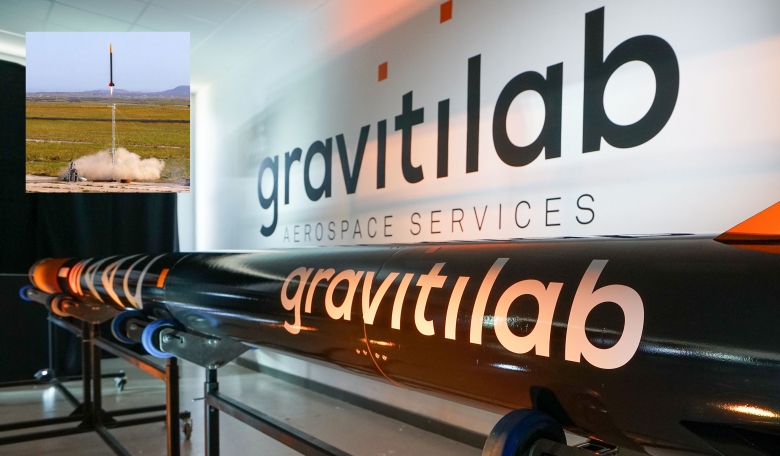Ambitious space-start-up Gravitilab is leading the race to establish the first vertical launch site in England close to the nerve centre of the UK space industry.
Operating from a former RAF base in the wilds of North Norfolk, the firm also plans to corner a slice of the international space market with its world-leading zero-gravity drone and eco-friendly sounding rockets.
Gravitilab claims it is the first UK-based company to provide end-to-end microgravity for research and testing, as well as the first in the world to offer it from a drone-launched pod system.
The firm’s fleet of rockets, designed exclusively for microgravity testing, includes ADA which became the first ever commercial rocket launched from UK soil in August 2021.
ADA is a smaller version of its principal commercial rocket, ISAAC, will fly to an altitude of 250 km and provide around 300 seconds of microgravity before returning to Earth for recovery and re-use. Its inaugural mission is slated for the first half of 2023.
Rockets will initially launch from UK Spaceport 1 at Benbecula Airport in the Outer Hebrides but by the middle of the decade Gravitilab plans to be operating an offshore launch pad in the North Sea off the Norfolk coast.
“A key reason for doing this is because all UK spaceports are a long way away from the heart of where the primary areas of UK space interest lie,” said Mark Roberts, the company’s recently appointed managing director. “ We are much closer geographically so it makes great sense to bring clients here.”
He also suggested that providing high quality microgravity environments for test, experimentation and science, at affordably competitive price points would stimulate the market.
Gravitilab’s drop pod system, LOUIS, recently delivered a world first for microgravity from a drone. It provides the opportunity to run more local and affordable testing campaigns albeit from lower altitudes.
Speaking to space industry professionals, academia and government representatives at the firm’s headquarters near Norwich on Friday (8 July), CEO Rob Adlard, says the company’s ambition is to reduce the high failure rate of nanosatellites in low Earth orbit.
“We are developing technologies and services to provide accessible and affordable research and testing services that will enable innovation while also helping to reduce the build up of space debris,” he stated.
Adlard says Gravitilab’s services support the space qualification of equipment which could help reduce the current up to 50 percent failure rate of newly deployed nanosatellites, with 75 percent of those failures immediate.
“We have developed a fleet of sub-orbital, hybrid powered rockets and a revolutionary Unmanned Aerial System (UAS) which releases a drop pod from a high altitude drone,” he said.
“Our range of vehicles enable customers to expose research & testing payloads to real space environments to understand how they behave with variations in temperature, thrust, radiation, vibration and, most importantly, microgravity.”
Space technology readiness for satellite hardware is assessed using an industry standard known as the Technology Readiness Level (TRL) scale, which ranks technology preparedness between 0 and 9.
Gravitilab believes it can address a gap between TRL levels 5 and 8 where it isn’t possible to test in a laboratory on Earth before an actual orbital mission. It says testing and certifying components in sub-orbital microgravity at relatively low-cost will make a major contribution to future space sustainability.
Katherine Courtney, former CEO of the UK Space Agency (UKSA), described space sustainability as a key priority in the country’s national space strategy.
“The UK space sector is becoming known the world over for it's focus on sustainability and the responsible use of space,” she said.
“But there is still a critical gap in the UK space value chain and that's the ability to safely and sustainably conduct experiments and test new technologies in microgravity from the UK. I'm delighted that Gravitilab is plugging that gap.”
Sustainability ethos is key driver for UK microgravity firm











